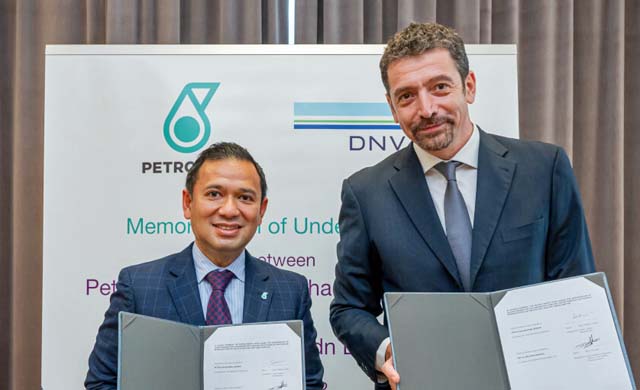DNV and Malaysia-based energy company Petroliam Nasional Berhad (Petronas) have signed a Memorandum of Understanding (MoU) to address the technical, regulatory and business challenges of carbon capture utilisation and storage (CCUS) deployment.
The companies plan to collaborate on initiatives and activities related to CCUS by leveraging each organisation’s technical skills, resources and research capabilities. CCUS enables the capture of CO2 emissions from industrial activities and in South-East Asia could play a crucial role in the region’s transition to net zero.
The MoU provides for the collaboration of both parties in the following areas:
- Technical matters including safety, environment, risk, technology and the qualification of storage sites
- Legislation and regulation
- Capability development
- Commercial areas
DNV claims over 20 years of experience in CCUS, providing guidance regarding key technical, market and safety risks for deployment, and examination of key areas including geological storage, pipeline re-use and the shipment of CO2. A suite of recommended practices has been published by DNV covering the full CCUS value chain.
Jamie Burrows, DNV Head of Business Development – CCUS, Energy Systems, said: “DNV’s expertise and track record in supporting CCUS projects globally, combined with Petronas’ technical capabilities and strategic resources, will spur the advancement of CCUS not only in Malaysia but across the region. CCUS will play a crucial role in Asia’s energy transition. Through this initiative we aim to address a number of areas fundamental to the establishment of regional hubs and thereby enable greater access to CCUS infrastructure.”
Brice Le Gallo, VP and Regional Director APAC, Energy Systems, said: “Accelerating a clean energy transition has never been more vital. Fossil energy is the primary-energy mix of Southeast Asia, according to DNV’s Energy Transition Outlook 2021, and will remain dominant at 75% in 2030 and 43% in 2050, despite strong growth in renewables. Under this scenario, carbon capture and removal will be critical – because the emissions generated by fossil fuel use in hard to abate industrial applications will need to be addressed. In order to transition to clean energy, we need more tools beyond renewable energy and this tool kit must include CCUS. Implementing CCUS at scale will require navigating technology, business, regulations and policy which is why we believe this collaboration will be important for deployment in the region.”



